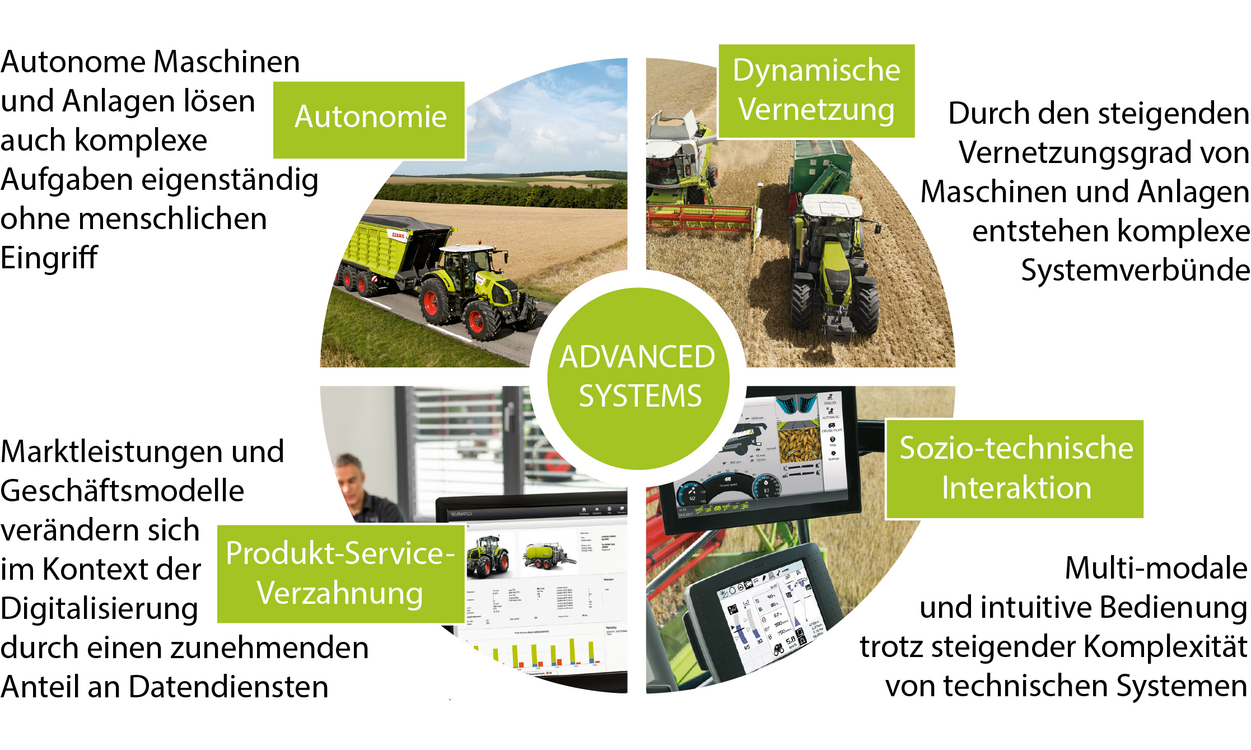Research content

Advanced systems engineering describes a new school of developing the intelligent technical systems of tomorrow.
Digitalisation is regarded as the outstanding driver of change today. It is creating fascinating potential benefits for industry, but digitalisation is also changing the market services of tomorrow and the way in which they are developed. More than ever, the overarching interplay of specialised disciplines such as electronics, IT and mechanical engineering is crucial. At the same time, the four main tasks of product development - strategic product planning, product development, service development and production system development - need to be closely coordinated and driven forward on a cross-disciplinary basis. Traditional development methods quickly reach their limits when developing the systems of tomorrow.
Advanced systems engineering has the potential to integrate those disciplines and diverse aspects of product development and to form a sound basis for an absolutely necessary holistic product development methodology in the age of digitalisation. Advanced systems have four characteristics (Figure 1):
1) Autonomy: Advanced systems independently solve complex tasks within a specific application domain. To do this, these systems must be able to act purposefully without remote control or further human assistance. For example, the basis for controlling the actuators can be based on a system-internal environment model that allows the system to react to new events during operation and learn new actions. Numerous technological building blocks are required for this, such as sensor fusion, semantic explanation models or planning processes.
2) Dynamic networking: The degree of networking of systems will increase. This will result in new, more complex systems whose functionality exceeds the sum of the functionalities of the individual systems. The system boundaries, interfaces and roles of the individual systems will vary depending on the overall system objective. The networked system, which is increasingly operating on a global scale, will no longer be controllable solely through global control; instead, globally desirable behaviour must also be achieved through local strategies. Since we assume that these individual systems can act independently of each other and are developed independently or by different providers, we speak of a system-of-systems (SoS).
3) Socio-technical interaction: The technological development described above also opens up new perspectives for interaction between humans and machines. The corresponding systems will adapt flexibly to the needs of users and provide them with context-sensitive support. They will also be able to explain themselves and offer the user options for action. Interaction will increasingly be multimodal (e.g. speech and gestures) and based on new technologies (e.g. augmented reality or holograms). This will lead to new types of socio-technical systems. Against this backdrop, the question is not so much in which tasks humans will be replaced, but rather which new tasks or which familiar tasks can be solved in new ways through augmentation - i.e. the expansion of human capabilities through machine intelligence.
4) Product-service systems: Product-service systems (also known as hybrid service bundles) are based on the close integration of goods and services and offer customer-centred solutions to problems. The benefits of innovative systems are generally generated by data-based services that include the collection, processing and evaluation of data. For example, analysing the data of a production plant can lead to a forecast of a machine failure, on the basis of which further services such as preventive maintenance and automatic ordering of spare parts can be initiated.
In order to meet the challenges in the development of advanced systems, our research focus is therefore divided into two fields Strategic planning and systems engineering).
